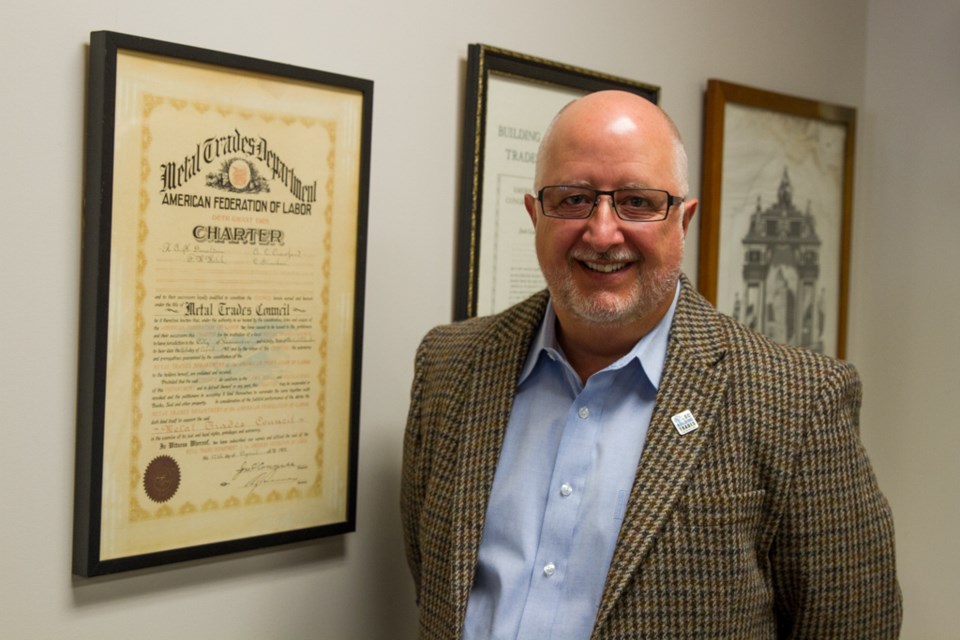Local chapters of four labour unions that recently signed a memorandum of understanding with Enbridge – the energy company behind the proposed Northern Gateway pipeline – have also thrown their support behind the proposed expansion of Kinder Morgan’s Trans Mountain pipeline, pending the National Energy Board’s approval of the project.
The unions contend that pipelines are the safest way to transport oil but also make their support conditional on the project being built in an environmentally sensitive way.
The Construction and Specialized Workers’ Union Local 1611 (under the Laborers’ International Union of North America), the International Union of Operating Engineers Local 115, the International Brotherhood of Teamsters Local 213 and the United Association of Journeymen and Apprentices of the Plumbing and Pipefitting Industry of the United States and Canada are all backing the pipeline.
Additionally, the British Columbia and Yukon Territory Building and Construction Trades Council, an umbrella organization which represents three of the aforementioned unions and 11 more between the province and territory, has expressed support for the project.
“For us, we’ve been building pipelines for decades,” said Tom Sigurdson, executive director of the council, adding that the unions under his group have installed nearly 90,000 kilometres of pipeline in the province.
“It’s the safest way to carry commodities from point A to point B, and we would rather see a pipeline delivering the commodity than see it on rail and truck transport.”
Brian Cochrane, business manager of the International Union of Operating Engineers Local 115, said major infrastructure projects like the Kinder Morgan pipeline are the bread and butter of his union’s workforce, which totals around 11,500 members.
“At the end of the day, if it goes through the approval process and is approved by the regulators, we’re going to be supportive of the process,” he said. “Our members build pipelines, of course, so these jobs are what keep our membership employed.”
If approved, the pipeline could run through Burnaby, to the chagrin of many residents who have spoken out against the project. Residents have rallied against the expansion at open houses and protests, primarily citing environmental concerns.
As well, the City of Burnaby has been a prominent opponent of the pipeline, requesting last month that the National Energy Board reject the project application.
While Cochrane understands the citizens’ perspectives, he said it’s important to know that the proposal to twin the Kinder Morgan pipeline isn’t anything new.
“I think the public sometimes doesn’t understand that the country is criss-crossed with tens of thousands of kilometres of pipelines currently,” he said. “Even the project in Kinder Morgan’s proposal to expand capacity, that existing pipeline and that infrastructure has been in place for 50 years.”
And while the public fears that the expansion could do irreparable damage to the area, he said his union and many others recognize the sensitive nature of the area and want to do everything they can not to disturb the delicate ecosystems.
“We share the same concerns as the public when it comes to ensuring that these projects are built with the highest quality and the most minimal impact to the environment,” he said.
Likewise, Sigurdson said the project should undergo a “rigorous and thorough set of hearings” to ensure it meets environmental standards before any ground is broken.
“We are not going to, for the sake of a couple of paycheques, put the environment at risk,” he said. “We want to make certain that it is done safely.”



